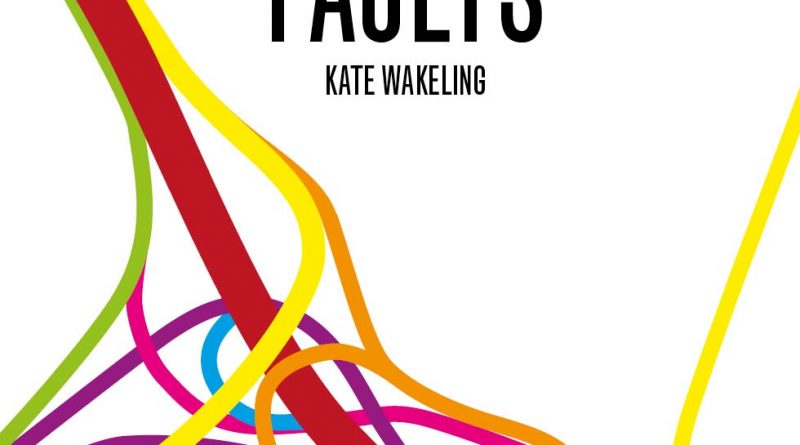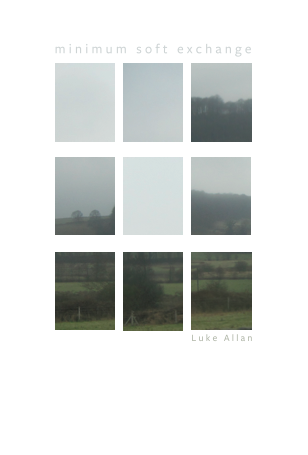The Rainbow Faults by Kate Wakeling
-Reviewed by Alice Tarbuck–
In ‘The Next Room’, toward the end of Kate Wakeling’s debut pamphlet, there is a line that rings true of the whole collection: ‘The days will leak constantly into twilight and you will love that’. These days – moments – lines – ‘leak’ throughout Wakeling’s work: there is always a moment when the poems reveal themselves to be strange, imagistically or formally curious in unexpected ways.
The Rainbow Faults is beautifully arranged, we move through the poems with punctuative beats: piano practice ‘Watching One’s Loved One Play The Piano/ Scalp Scabs’ or strangers on the train ‘He Isn’t Johnny Cash’, are interspersed with poems that return consistently to the theme of magic. The first poem in the collection, ‘Lore’, details a woman – her appearance, mannerisms and habits, a blazon for the tumblr-witch era. Perhaps Wakeling’s greatest strength in this collection is distilling the folkloric, the magical and curious into an entirely clear, modern, exciting register. ‘Lore’ begins with an image of woman existing on a universal scale: ‘Her stride says comet’. But this woman is not simply remote, floating, mythic in the manner of the Olympic gods. Rather, this woman is powerful in more practical ways, she ‘spits the locks off doors, skins lies’ and ‘feasts on clay and thistles/rides rivers,/salts dreams,/mutters the rats to sleep’. A powerful composite of types of myth and lore, this female figure represents strength, but not strength in its fertile, matriarchal form. Instead, Wakeling is interested in ways in which the female form can subvert, and slip through expectations.
Finding new forms of corporeality is of central concern to Wakeling. In ‘Apparition’, the poetic voice has agreed, perhaps as part of a game, to ‘be the ghost’ and ‘from that moment’ becomes ‘only vapour’. But this transformation, this removal of corporeality is not ‘bliss’. Instead, the ghost becomes a translator, ‘applying glassy rigour/to impermanent tongues’. Almost as if the ghost can tune or clarify the speech of others, because the ghost has been robbed of speech itself. The persistent ‘I’ at the beginning of each stanza reaffirms the ghost’s presence, its selfhood, but this is weakened by the fourth and fifth stanzas where the ‘I’ pattern is interrupted, spoken over and forgotten. The ghost’s demise comes from being ‘too long in the town square/craving the mistress of the séance’, and in these lines it’s easy to perceive Wakeling’s dexterity in her attention to sound. The ‘o’ sounds, echoing the the empty ‘o’ at the centre of ‘ghost’ haunt the poem, and the soft ‘s’ is used throughout to highlight moments of mistake, of false assumption. Eventually, lingering too long, the ghost is infiltrated by the outside world, and as a result is sipped dry. The idea of ghost as container and conduit, provides a beautiful foil for the bolshie enthusiasm of ‘Lore’, and instead examines the danger of surrendering selfhood for a life of translation. How quickly, Wakeling says, the voice is lost.
Wakeling’s voice, however, is strong. Her poems are artful, and need to be read and re-read to allow their complexities to unfold. She is afraid neither of density nor allusion, and as a result, her poems are rich and textured. In ‘Moth’, she ventriloquizes that rather unlikely third fairy from A Midsummer Night’s Dream who has lost her magic, ‘squandered the lot on mortal grossness’ and must now act as ‘hireling of the bower’ instead, pandering to Titania and overseeing the action of the play. The poem is beautifully meta-textual: Moth must wait for ‘the act to lift’ before she can leave both the stage and the job that has her in thrall. Moth is always both actor and player in the poem. When she states ‘out of this wood I do desire to go’ she upends Titania’s warning to Bottom (‘out of this wood do not desire to go’). By doing so, Moth reveals herself to be at the edge, listening, and watching the action unfold. Like the ghost of ‘Apparition’, her lack of agency means that she develops acute perceptory senses.
Wakeling’s work is full of interest, beauty and a faint sense of unease. It is dark as unlit woodland, but her mastery of sonic patterning and tight structure means that it is also delicious, irresistibly readable. The Rainbow Faults is a powerful debut and shows an acute perception and a fine ear, I look forward to reading more of her work.




